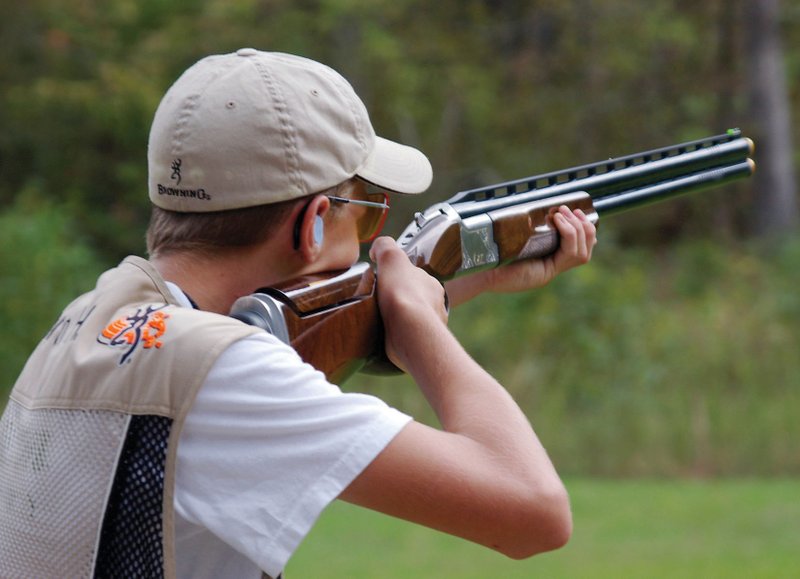Some bird hunters and small-game enthusiasts view shotguns as nothing more than tools. For them, a gun is made to load, shoot and kill game — nothing more, nothing less. As long as the gun functions mechanically, it will serve its purpose.
There is another group of hunters, however, who are interested in guns for their own sake. For these outdoorsmen, guns must meet multiple requirements. They must fire, of course, but they also must be “shootable” — possessing the handling qualities of good balance and pointability, feeling good in the hands. That is why, in this latter group, you will find many who have a special love for “double guns” — over-and-under and side-by-side shotguns.
I suppose I fit into this group, at least to some extent. Of the many guns I own, my favorite is a Remington Arms double-barrel 12-gauge I inherited when my father died. Prior to Dad’s death, I’d never used a double-barrel very often. But when this one was passed down to me, I took it out to hunt with and immediately fell in love with it.
Now I frequently use that old Remington while pursuing squirrels, rabbits, quail, woodcocks and other game. I don’t know what model it is, or how old it might be. There’s nothing on the shotgun to indicate these things, and I’m anything but a gun expert. But that double-barrel feels good in my hands, and I like the way it shoots.
I often wonder if my father liked it as much as I do. If appearances are any indication, he did. The stock is pitted and well-worn. The barrel needs rebluing. It’s obvious the shotgun didn’t just sit in a rack; it was used for hunting. When I have it in my hands, it feels like a part of me.
When shooting skeet or sporting clays, a double gun is my favorite once again. In this case, however, I prefer an over-and-under — a Browning Citori 12-gauge that also belonged to my father. I hunt with this gun occasionally, but mostly it’s reserved for busting clay birds or other target shooting. And though I’m anything but an expert marksman, I can hold my own with most fellow shooters at the trap or skeet range whenever I am sighting down the barrel of this beauty.
I have several semi-auto shotguns, one pump and a couple of single shots, too. But the double guns are far and away my favorites in my gun cabinet. And I’ve learned that I’m not alone in my love for these special shotguns.
Many firearms enthusiasts believe double guns are the ultimate refinement of hunting arms, both in mechanics and handling qualities. That may be the case, for these trim, racy shotguns can be exceedingly expensive. Current prices for a new Purdey, for example, begin at more than £40,000 ($56,000) for a side-by-side and at better than £51,000 ($72,000) for an over-and-under. New guns built to order by other top-quality makers in
England and Europe are equally pricey.
Thanks to improved manufacturing technology, however, quality machine-made double guns can be produced for a fraction of what even semi-custom guns might cost, putting the machine-made double guns in a price bracket affordable by a large spectrum of hunters. Many of these guns are available for less than $2,000. You can save even more by searching gun shows, pawn shops and sporting-goods stores, where affordable used double guns can often be found.
Why buy a double gun? “There are all sorts of reasons, both aesthetic and practical, for choosing a double,” said Michael McIntosh, a bona fide double-gun disciple and the author of several books about shotguns. “To my eye they are the most beautiful, graceful and elegant guns of all. Their handling qualities can be superb. They often weigh less than pumps or autoloaders, and the way their weight is distributed — that is, their balance — can make them highly dynamic. No other type of gun has quite the same feel.”
You may still be uncertain which double gun is right for you, even if you’ve already decided to invest the hundreds of dollars needed to buy one. How can you be assured you’re making the right decision?
“First, you should decide what you want to use the gun for,” McIntosh said. “Target shooters generally prefer over/unders, for a variety of reasons, and so do a lot of bird hunters. If you intend to hunt waterfowl, then you’ll probably want a 12-gauge with enough weight to help dampen recoil from stiff loads.
“An upland hunter should think in terms of the birds he hunts most often,” McIntosh continued. “A 12-gauge is certainly the most versatile; that or a 16 is usually preferable for pheasants and other birds that often offer longer shots. For quail, grouse, woodcock and such, a 20- or 28-gauge is hard to beat.”
And what about the difference between side-by-sides and over/unders? “This is mainly a matter of personal preference,” McIntosh said. “Go with the one that looks and feels best to you. If you can borrow a couple of each type and shoot some targets with them, you’ll get an idea of which feels most comfortable.”
In an article titled “Doubles: Yesterday and Today,” writer John M. Taylor summed up the feelings of many double-
gun owners with this paragraph: “Double guns are very much like beautiful women and sleek cars; they seem alive in the hands and are a feast to the eyes. Certainly, just as there are ugly cars and gauche women, there are doubles that are little more than clubs or jack handles. But good doubles are simply great shotguns.”
One thing’s for sure: When you discover the delights of a double, you’re going to want one of your own. The good news is, it doesn’t have to cost an arm and a leg.
